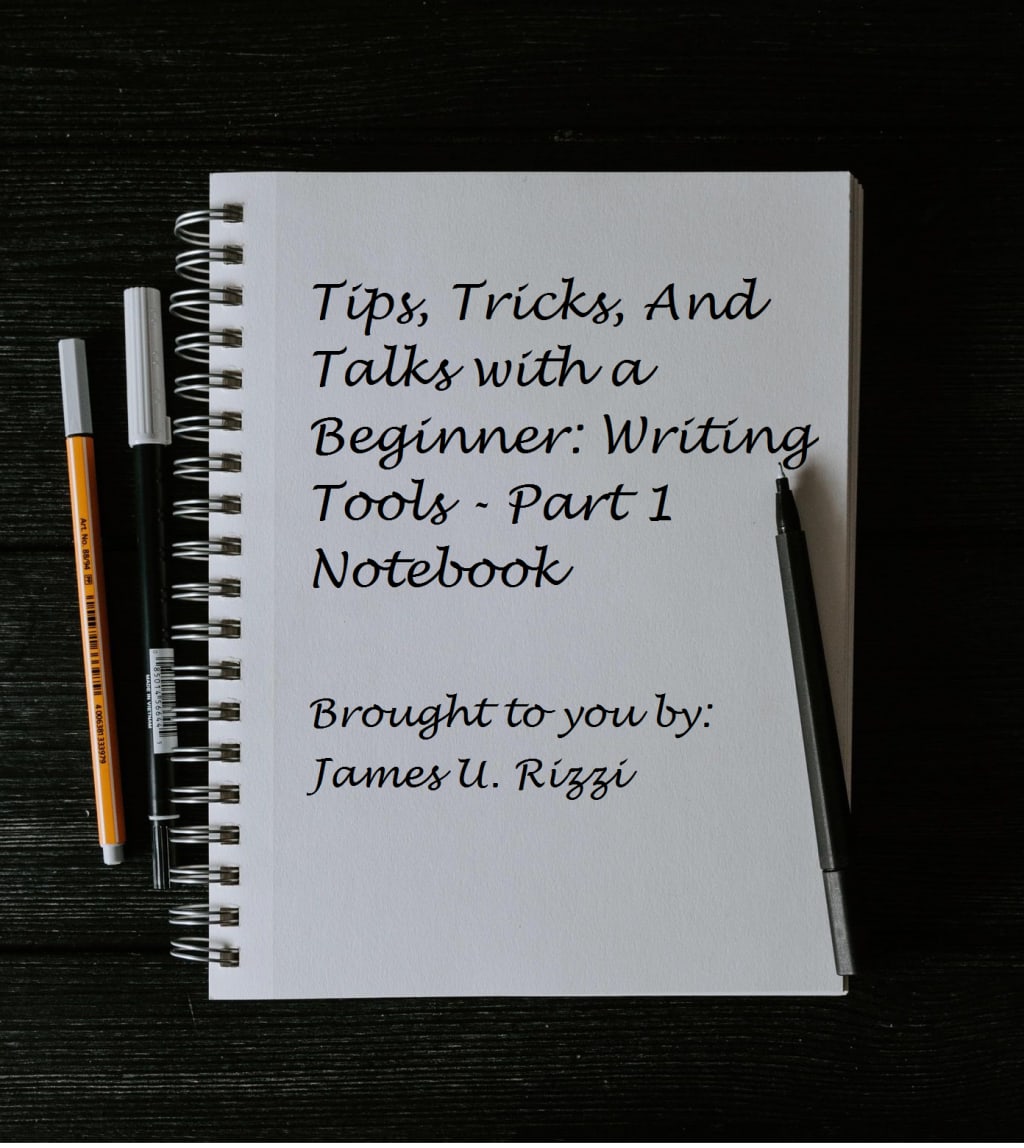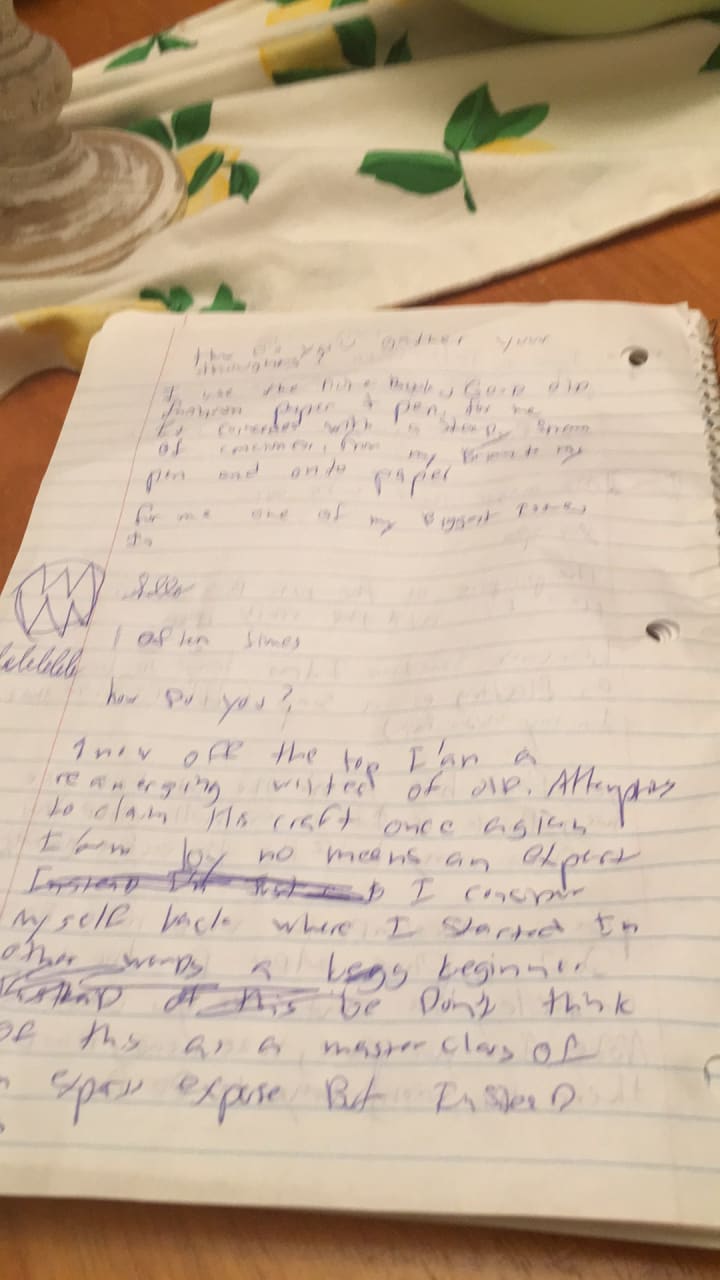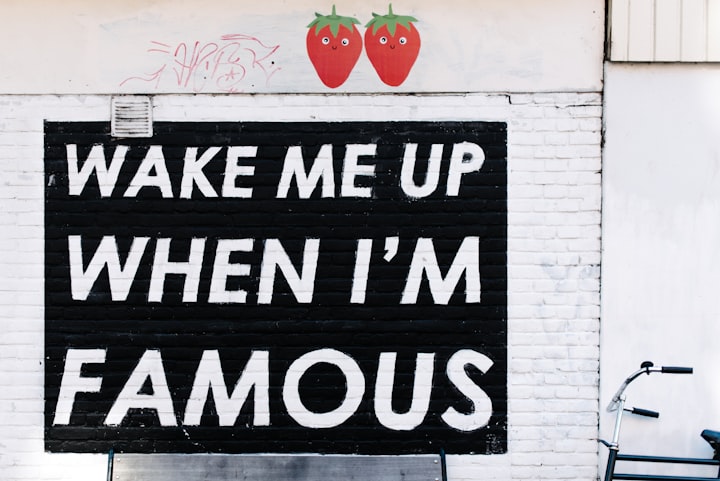Tips, Tricks, And Talks With a Beginner: Writing Tools - Part 1 Notebook
“From free-flowing intentions to organized design, your ideas deserve the spotlight, and your stories will thank you for it.”

Part 1 Notebook:
Being that this is my inaugural piece for Vocal Creators Chronicle, I want to state a few things right off the top. This may come as a shock to you all, but I am by no means an expert. In fact, I am a re-emerging writer of old, attempting to reclaim his craft once again. I consider myself back to where I started. So, in other words, I am, as the header states: a beginner. Don’t think of this as a masterclass or an expert exposé, but rather a fellow writer who is beginning a journey into self-discovery and determination to become the best he can be. This voyage should be taken hand in hand as I share with you what I learn along the way such as some tips, a few tricks here and there, and general discussion.
Since this is my first column, I should lay out the tracks for what you can expect. I surmised the best way to do so was just to start. And that’s my first piece of advice right there, and probably my favourite: “Just Start.” I know you flirt with ideas; I know you have doubts, what-ifs—the procrastination, the lack of confidence—all of it is a universal plague to the creative process. The simple in theory and hard in practice remedy would appear to be “Just Start”, but perhaps that’s a discussion for another thread. For now, there’s no time like the present, and I want to dive into my favourite and most important tool: the notebook.
Admittedly, I take the Stephen King approach and go full boar, completely disregarding the outline altogether. Be that as it may, a common problem I run into is incomplete thoughts.
My writing process goes a little something like this:
Step 1: “A plethora of ideas, scenarios, characters, endings, beginnings erupt in my head, each of them eager to make their way into my story”
Step 2: “The excitement, the prospect of seeing my ideas come to life, and my bad habits of changing those ideas in my head on the fly, make me forget them altogether.”
Step 3: “End up writing an amalgamation of what I can remember.”
Now, a lot of you might not have this problem—or maybe you do—but the remedy for said problem can be used to great advantage elsewhere. Think of it as a multifaceted tool: a swiss army knife for the active writer. That remedy being a notebook.
As we advance, please understand the word notebook is just a placeholder for the current article; use whatever term you’re comfortable with using. Whether that be notes in your phone, voice memo, recording a video, there’s no wrong way to do it. I use the notebook because I like good old-fashioned paper and pen in terms of quick ideas. For me, it coincides with a steady stream of consciousness. From my brain to my pen, then pen to paper.
The purpose of the notebook is to have it at the ready because sometimes ideas are as fleeting as soap bubbles. You want to catch them before they pop (I wrote that in my notebook prior. I practice what I preach.) It can be applied to anything; it isn’t required for intricate plot points or flushing out a dynamic character. It can be something as simple as a cool name for a character. You see something while driving and think that would be a glorious name for a character? BOOM NOTEBOOK. What if the setting was underground? BOOM NOTEBOOK. What if my character had three eyes? BOOM NOTEBOOK. It doesn’t matter. From free-flowing intentions to organized design, your ideas deserve the spotlight, and your stories will thank you for it.

I’ll end with this. For the longest time, I didn’t think I deserved to be here. I didn’t think I stood a chance at writing with the elite. And for all I know, maybe I still don’t. But I owe it to myself to try, and so do all of you. So, for now, I’ll keep my notebook tucked under my arm at the ready and repeat this thought. “A professional writer is an amateur who never stopped” - Richard Bach.
Till next time folks. Until then, happy writing.
- James U. Rizzi
CLICK HERE to Return to Magazine
About the Creator
James U. Rizzi
I cant wait to see what I can create here.






Comments
There are no comments for this story
Be the first to respond and start the conversation.